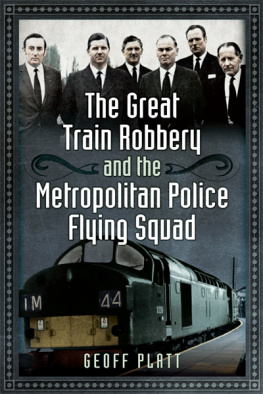G RAPHIA
HOUGHTON MIFFLIN HARCOURT
BOSTON NEW YORK
Acknowledgments
The author would like to thank Richard Buckland, Jamie Grant,
Jill Grinberg, Margaret Connolly, and Peter Dockrill for their assistance.
Copyright 2008 by Catherine Jinks
All rights reserved. Published in the United States by Graphia, an imprint of Houghton
Mifflin Harcourt Publishing Company. Originally published in hardcover in the United States
by Harcourt, an imprint of Houghton Mifflin Harcourt Publishing Company, 2008.
Graphia and the Graphia logo are registered trademarks of
Houghton Mifflin Harcourt Publishing Company.
Requests for permission to make copies of any part of the work should be
submitted online at www.harcourt.com/contact or mailed to the following address:
Permissions Department, Houghton Mifflin Harcourt Publishing Company,
6277 Sea Harbor Drive, Orlando, Florida 32887-6777.
www.graphiabooks.com
First published in 2008 by Allen & Unwin, Australia
First U.S. edition 2008
The Library of Congress has cataloged the hardcover edition as follows:
Jinks, Catherine.
Genius squad/Catherine Jinks.
p. cm.
Sequel to: Evil genius.
Summary: After the Axis Institute is blown up, fifteen-year-old Cadel Piggot is
unhappily stuck in foster care with constant police surveillance to protect him from the
evil Prosper English until he gets an offer to join a mysterious group called Genius Squad.
[1. GeniusFiction. 2. IdentityFiction. 3. CrimeFiction.
4. Good and evilFiction. 5. AustraliaFiction. 6. Science fiction.] I. Title.
PZ7.J5754Gen 2008
[Fic]dc22 2007030373
ISBN 978-0-15-205985-9
ISBN 978-0-15-206650-5 pb
Text set in Ehrhardt MT
Designed by April Ward
A C E G H F D B
Printed in the United States of America
This is a work of fiction. All the names, characters, places, organizations, and events
portrayed in this book are products of the author's imagination. Any resemblance
to any organization, event, or actual person, living or dead, is unintentional.
To Kathy Dawson, who conjured this book into existence
PART ONE
ONE
Cadel was in a very sour mood when he first met Detective Inspector Saul Greeniaus.
The day had started badly. To begin with, Cadel had been woken up at 3:00 A.M. by the sound of piercing screams coming from Janan's bedroom. Though only six years old, Janan had the lung capacity of a whale. He also suffered from night terrors, and the combination was deadly. Cadel usually felt sorry for Janan, who had been living in foster homes for most of his life. But it was hard to sympathize with anyone at three o'clock in the morning, let alone a kid who could scream like a hysterical gibbon.
As a result of his interrupted sleep, Cadel was late for breakfast. Not that it mattered. He didn't have to go to school, so Mr. and Mrs. Donkin never insisted that he be awake at a specific time. But Mace and Janan did attend school, and were finishing their eggs just as Cadel arrived in the kitchen. Had Cadel been feeling more alert, he would never have sat down to eat just then. He would have waited until Mace was out of the house and running to catch the bus, his gray shirt untucked and his thick legs pumping.
Had Cadel used his brain, he would have sensed trouble in the air, and tried to head it off.
The whole problem was that he couldn't protect his own bedroom. There was a house rule about always knocking first, and another rule about respecting privacy. These rules were written in beautiful script on a piece of handmade paper that was pinned to the door of the pantry cupboard. (Hazel had done an evening course in calligraphy.) But both rules were quite easy to break, because Hazel had banned locks and keys from the Donkin premises.
Cadel could understand her point of view. One of her previous foster sons had locked himself in his bedroom before trying to set it alight. Leslie, her husband, had then been forced to smash through the door with a hammer. So although Hazel continuously said nice things about sharing, and everyone "always being welcome everywhere," Cadel felt sure that her open-door policy was rooted in fear. She was afraid of what might happen if, during an emergency, she couldn't reach any of the kids in her charge.
This was certainly Fiona's opinion. Fiona Currey was Cadel's social worker. She had told Cadel about the locked-bedroom incident, after Cadel had finally complained to her about Mace, who liked to mess around with other people's possessions. It was pointless complaining to Hazel, as Cadel had discovered. Her answer to every problem was what she called a "family conference."
"I'm sorry, Cadel," Fiona had said. "I know it must be hard, but it won't be forever. Just hang in there. Mace isn't nearly as bright as you are; surely you can handle him for a little while? Until things are sorted out?"
Most people seemed to jump to the same conclusion about Mace, whose real name was Thomas Logge. They thought that he was stupid. They looked at his lumbering form, his vacant grin, and his clumsy movements, and they made allowances. They heard his slow, awkward speech patterns and dismissed him as a big dumb kid. Whenever he smashed something, they called it an accident; cracked windows and broken doorknobs were explained away. Mace, they said, had badly underdeveloped fine motor skills for a fourteen-year-old. He didn't know his own strength. He might have poor impulse control, but he wasn't malicious. He wasn't clever enough to be malicious.
Only Cadel had doubts about this interpretation of Mace's conduct. In Cadel's opinion, Mace was a lot smarter than he let on. Not brilliant, of course, but cunning. Had he been as stupid as everyone made out, Mace wouldn't have been so quick to take advantage of the few minutes granted to him while Cadel was eating breakfast.
How many minutes had it been? Six? Seven? Long enough for Cadel to gobble down an English muffin. Long enough for Mace to empty his bladder into Cadel's bed.
When Cadel returned to his room, he found his mattress wet and stinking.
"Mace did it," he told Hazel.
"No, I didn't!" That was another thing about Mace; he had perfected the art of sounding completely clueless. "I did not! He's blaming me because he wet his bed!"
"Did you really wet your bed, Cadel?" asked Janan, who wet his own bed all the time. He sounded pleasedeven excitedto discover that someone else shared his problem. Especially someone who had recently turned fifteen.
"There's nothing wrong with wetting the bed," Hazel assured them all, in soothing tones. "I have plastic covers on the mattresses, and I can easily wash the sheets. You don't ever have to feel bad about wetting the bed."
"I don't feel bad," said Cadel, through his teeth. "Because I didn't wet it. Mace did."
"I did not!"
"Then why are my pajamas bone dry?" asked Cadel, holding them up for inspection. Mace blinked, and Hazel looked concerned. She never frowned; her wide, plump face wasn't built for frowning. In situations where other people might have worn grim or angry expressions, Hazel merely looked concerned, dismayed, or disconcerted.
"Oh dear," she said.
"He probably didn't even wear his pajamas," Mace remarked cheerily, demonstrating once againin Cadel's opinionthat he wasn't as thick as everyone assumed.
"Those pajamas were clean last night," Cadel pointed out, trying to stay calm. "Hazel, you gave them to me, remember? Do they smell as if I've worn them?"
Hazel took the pajamas. She put them to her small, round nose. Cadel knew that when it came to laundry, Hazel had the nose of a bloodhound. After bringing up four children and twelve foster children, she was thoroughly trained in the art of distinguishing dirty garments from clean ones.
Next page













